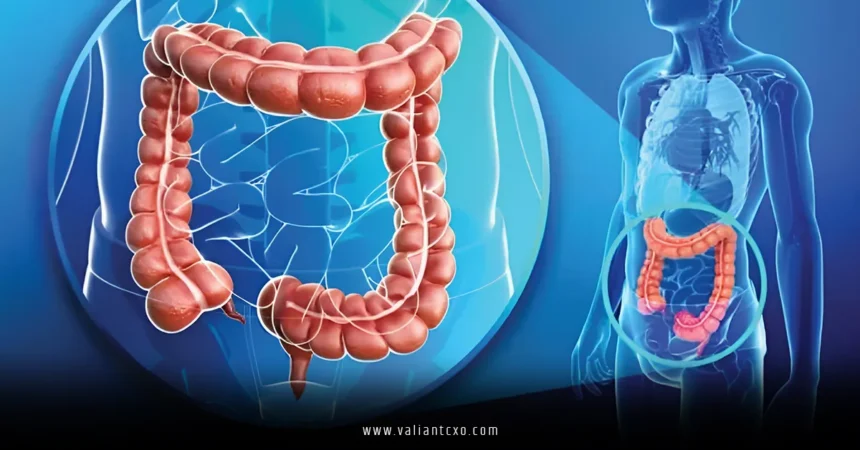Colorectal cancer is a topic that often lurks in the shadows of health conversations, yet it’s one of the most common cancers worldwide. Imagine your body as a bustling city, with your colon and rectum as critical infrastructure, quietly working to keep things moving. When colorectal cancer strikes, it’s like a rogue construction crew disrupting the system, causing chaos that can spread if not addressed. This article dives deep into what colorectal cancer is, its causes, symptoms, prevention strategies, and treatment options, all while keeping things clear and approachable. Whether you’re here for yourself or a loved one, let’s unravel this complex topic together.
What Is Colorectal Cancer?
Col-ore ctal can-cer, sometimes called colon cancer or rectal cancer, starts in the colon or rectum, parts of your digestive system responsible for processing waste. Think of your colon as a long, winding highway and the rectum as the final exit ramp. Cancer begins when cells in these areas grow uncontrollably, forming tumors that can interfere with normal function. It often starts as small, noncancerous growths called polyps, which can turn malignant over time. Why does this matter? Because catching colorectal cancer early can make all the difference.
How Common Is Colorectal Cancer?
Col-ore-ctal can-cer is no rare villain. It’s the third most common cancer globally, affecting millions each year. Men and women are equally at risk, though men may face slightly higher rates. Age plays a big role—most cases pop up after 50, but younger adults aren’t immune, especially with rising rates in people under 40. The good news? Awareness and screening can slash your risk of advanced disease.
What Causes Colorectal Cancer?
The exact cause of colorectal cancer is like a puzzle with missing pieces, but we know certain factors crank up the risk. It’s not just one thing—it’s a mix of genetics, lifestyle, and environment. Let’s break it down.
Genetic Factors
Your DNA can sometimes be a double-edged sword. If colorectal cancer runs in your family, your risk climbs. Conditions like Lynch syndrome or familial adenomatous polyposis (FAP) are genetic red flags, causing polyps to form early and often. It’s like inheriting a faulty blueprint for your body’s cell growth.
Lifestyle and Environmental Triggers
What you eat, how you move, and even where you live can influence colorectal cancer risk. A diet heavy in red or processed meats—like bacon or burgers—is like fuel for cancer cells. Smoking and heavy alcohol use? They’re accomplices. Obesity and a sedentary lifestyle also tip the scales, while chronic conditions like inflammatory bowel disease (IBD) can set the stage for trouble.
Can You Control These Risks?
Here’s the empowering part: you can influence many of these factors. Swapping processed foods for fiber-rich veggies, quitting smoking, or taking a daily walk can shift the odds in your favor. It’s like giving your body a shield against colorectal cancer’s sneak attack.
Recognizing the Symptoms of Colorectal Cancer
Co-lo-re-ctal ca-nc-er is sneaky, often hiding without obvious signs until it’s advanced. But your body might drop subtle hints. Ever noticed changes in your bathroom habits? Persistent diarrhea, constipation, or a feeling that your bowel isn’t emptying completely could be clues. Blood in your stool—bright red or dark and tarry—is a red flag. Other signs include unexplained weight loss, fatigue, or abdominal pain that feels like a constant cramp. These symptoms don’t always mean colorectal cancer, but they’re worth a chat with your doctor.
Why Symptoms Matter
Ignoring these signs is like ignoring a blinking check-engine light in your car. Early detection of colorectal cancer can boost survival rates dramatically—up to 90% for early-stage cases. So, don’t brush off those gut feelings (pun intended).
Screening for Colorectal Cancer: Your First Line of Defense
Screening is your superhero in the fight against colorectal cancer. It’s like sending a drone to scout for trouble before it escalates. Tests like colonoscopies, fecal occult blood tests, and stool DNA tests can catch polyps or early cancers before symptoms even appear.
When Should You Start Screening?
Guidelines suggest starting regular screenings at age 45 for most people, earlier if you have a family history or risk factors like IBD. A colonoscopy, for example, is like a deep clean for your colon—it not only detects issues but can remove polyps on the spot. Don’t dread it; it’s a small price to pay for peace of mind.
Types of Screening Tests
- Colonoscopy: The gold standard, offering a direct look inside your colon.
- Fecal Tests: Non-invasive options that check for blood or DNA markers in your stool.
- Sigmoidoscopy: A less invasive scope that checks the lower colon.
Each test has pros and cons, but they all aim to catch colorectal cancer early. Talk to your doctor about what’s right for you.
Preventing Colorectal Cancer: Proactive Steps You Can Take
Prevention is like building a fortress around your health. While you can’t control everything, small changes can make a big impact. Here’s how to fortify your defenses against colorectal cancer.
Eat Smart
Your plate is your first line of defense. Load up on fruits, vegetables, and whole grains—think of them as bodyguards for your colon. Fiber keeps things moving and reduces the time harmful substances linger in your gut. Cut back on red meat and processed foods; they’re like unwelcome guests at the health party.
Stay Active
Exercise isn’t just for your waistline—it’s a weapon against colorectal cancer. Aim for 30 minutes of movement most days, whether it’s a brisk walk, yoga, or dancing in your living room. It’s like giving your body a tune-up to keep cancer at bay.
Quit Smoking and Limit Alcohol
Smoking and heavy drinking are like pouring fuel on a fire. Quitting smoking and sticking to moderate alcohol (one drink a day for women, two for men) can lower your colorectal cancer risk. Your body will thank you.
Regular Checkups
Don’t skip those doctor visits. Routine screenings and open conversations about your health can catch colorectal cancer before it gains a foothold. It’s like having a vigilant security team watching your back.
Treatment Options for Colorectal Cancer
If colorectal cancer is diagnosed, don’t panic—there are powerful tools to fight it. Treatment depends on the stage, location, and your overall health. Think of it as a tailored battle plan.
Surgery: The Frontline Attack
Surgery is often the go-to for colorectal cancer, especially in early stages. Doctors may remove polyps, part of the colon (colectomy), or even the rectum in some cases. It’s like pruning a diseased branch to save the tree.
Chemotherapy and Radiation
For advanced colorectal cancer, chemo or radiation might join the fight. Chemotherapy uses drugs to target fast-growing cancer cells, while radiation zaps tumors with high-energy beams. These are like heavy artillery, often used before or after surgery to shrink tumors or kill lingering cells.
Targeted Therapies and Immunotherapy
Newer treatments, like targeted therapies, act like precision-guided missiles, attacking specific cancer cell features. Immunotherapy boosts your immune system to fight colorectal cancer, like giving your body’s natural defenses a power-up. These options are game-changers for some patients.
What to Expect During Treatment
Treatments can be tough, with side effects like fatigue, nausea, or hair loss. But advancements mean better outcomes and fewer side effects than ever before. Your medical team will guide you, like navigators on a stormy sea, ensuring you get the best care.
Living with Colorectal Cancer: Coping and Thriving
A colorectal cancer diagnosis can feel like a punch to the gut, but life doesn’t stop. Support groups, counseling, and lifestyle adjustments can help you navigate this journey. Think of it as recalibrating your compass to find a new normal.
Emotional Support
Lean on friends, family, or support groups. Sharing your story with others who get it can be like finding a lifeline in rough waters. Mental health matters just as much as physical health.
Nutrition and Wellness
Eating well and staying active during treatment can boost your strength and mood. Work with a dietitian to tailor a plan that supports your recovery. It’s like fueling your body for the marathon ahead.
The Importance of Awareness and Advocacy
Spreading the word about colorectal cancer is like shining a spotlight on a hidden threat. Awareness campaigns, like those from the American Cancer Society, encourage screening and early detection. Advocacy groups also fund research and support patients, making a real difference.
How You Can Help
Share information, join awareness events, or donate to organizations like the Colorectal Cancer Alliance. Every step counts in the fight against colorectal cancer.
Conclusion: Taking Charge Against Colorectal Cancer
Colorectal cancer is a formidable foe, but it’s not unbeatable. By understanding its causes, recognizing symptoms, prioritizing screening, and making smart lifestyle choices, you can take control of your health. Early detection is your greatest ally, turning a potential crisis into a manageable challenge. So, talk to your doctor, embrace healthy habits, and spread awareness. You’re not just protecting yourself—you’re paving the way for a healthier future for everyone.
Frequently Asked Questions (FAQs)
1. What are the early warning signs of colorectal cancer?
Early signs of colorectal cancer include changes in bowel habits, blood in the stool, abdominal pain, or unexplained weight loss. Always consult a doctor if these persist.
2. How often should I get screened for colorectal cancer?
Most people should start screening at age 45, typically with a colonoscopy every 10 years. Those with higher risk may need earlier or more frequent tests.
3. Can colorectal cancer be prevented?
While not fully preventable, you can lower your colorectal cancer risk with a healthy diet, regular exercise, limited alcohol, and avoiding smoking.
4. What’s the survival rate for colorectal cancer?
Survival rates vary by stage. Early-stage colorectal cancer has a 90% five-year survival rate, while advanced stages are lower but improving with new treatments.
5. Are there support resources for colorectal cancer patients?
Yes, organizations like the National Cancer Institute and support groups offer resources, from treatment info to emotional support, for those facing colorectal cancer.
Read More:valiantcxo.com


